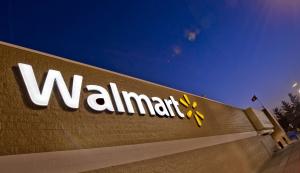Hmmm
posted on
Jan 15, 2013 07:26PM


 The MCX consortium, which is building a mobile wallet that will compete with the Isis Mobile Wallet, Google Wallet and other wallet offerings in the U.S., is passing on NFC for its initial launch, instead planning to use bar codes and cloud technologies. It has not said when it will launch, however.
The MCX consortium, which is building a mobile wallet that will compete with the Isis Mobile Wallet, Google Wallet and other wallet offerings in the U.S., is passing on NFC for its initial launch, instead planning to use bar codes and cloud technologies. It has not said when it will launch, however. The MCX consortium, the group of major U.S. merchants planning to roll out their own mobile wallet, will primarily use bar codes and cloud-based technologies to start off with, not NFC.
Representatives of the group, including those from Wal-Mart, Lowe’s, the Gap and Dunkin’ Donuts, were scheduled to disclose the initial technology choice during a session Monday at the National Retail Federation’s annual convention and expo in New York.
“The initial MCX solution will be primarily barcode- and cloud-based, which will allow it to work on the broadest array of smartphones and at a wide range of merchant locations, where bar-code payments can be accepted without major new capital expenses,” an MCX spokesman said.
The group was not expected to reveal at the convention when it plans to launch and which cities, however. Original planners had hoped to launch a pilot before the end of 2012, NFC Times has learned, but progress appeared to move slowly for the group in 2012.
If the MCX plans call for using bar codes or QR codes for payment, it would mean the group is planning to include closed-loop payments as part of its wallet offer–since open-loop payment schemes, such as Visa Inc. and MasterCard Worldwide, would not accept the security provided by bar codes. In addition, both schemes are pushing NFC.
The main goal of the merchants is to reduce payment transaction fees, and they believe the emerging era of mobile payment gives them an opportunity to change the prevailing payment rules.
Among the likely scenarios is for the merchants to issue private-label payment cards for the wallet, which don’t require as much security as open-loop credit and debit cards. But merchants are also expected to try to gain more leverage with certain open-loop card issuers and smaller payment networks willing to negotiate lower fees. And they could accept ACH-based payments from the mobile wallet.
All these options would help MCX exert pressure on Visa and MasterCard and big issuers to lower transaction fees. A secondary goal of the MCX wallet is to keep a tighter control of consumer data.
The technology choice also means that MCX has rejected NFC technology for the initial launch of the wallet. A source told NFC Times that NFC has definitely been on the roadmap for MCX, but it could be one to two years before the group adds the technology.
“MCX does intend to be nimble and evolve along with technology,” an MCX spokesman told NFC Times, when asked about prospects for supporting NFC later. “Part of the appeal of bar code as an initial solution is that many merchants are already equipped to accept bar-code payments and, because of that, won’t need to incur significant capital expenditures to do so.”
He did not specify whether he was referring to 2-D bar codes or 1-D bar codes. Starbucks is using 2-D, or QR codes, for its closed-loop payment service, and MCX member Dunkin’ Donuts in August introduced a mobile app also using QR codes for payment. But few merchants have QR code scanners installed at the checkout counter.
Online payments company PayPal has tried a range of technologies as part of its expansion to the physical point of sale, including 1-D bar codes, but has rejected NFC at the checkout counter. PayPal has experimented with peer-to-peer payments using NFC, however.
MCX is also expected to use bar codes to enable users to redeem loyalty rewards and offers. And it could try such cloud-based technologies as geofencing for payments or offers. The group has not specified which cloud-based or Internet technologies it would support for the wallet.
Meanwhile, MCX has disclosed some new members, including specialty retailers Dick’s Sporting Goods and Hobby Lobby and regional convenience store chains, among them Wawa and QuikTrip.
Original members include such large U.S. national chains as Wal-Mart, Target, Best Buy, 7-Eleven and CVS/pharmacy. The group announced additional merchants in October, such as Bed Bath & Beyond, the Gap and Dillard’s.
The group’s 26 members take in seven of the 14 largest merchants by sales, handling more than $1 trillion in payments each year and operating more than a combined 75,000 stores, according to MCX.
The group, also known as the Merchant Customer Exchange, is looking for a CEO to head the operation. NFC Times has reported that among those that have been considered for the job is Google Wallet chief Osama Bedier, according to sources.
“As far as the CEO search goes, it’s ongoing and running smoothly,” said the MCX spokesman. “Stay tuned.”
The MCX initiative hurts other wallets in their efforts to recruit merchants. That includes Google Wallet and Isis–the mobile wallet initiative of Verizon Wireless, AT&T Mobility and T-Mobile USA–since MCX has asked member merchants to sign an exclusivity clause for at least a limited period, sources have told NFC Times.
These merchants could accept straight payments from such applications as Visa payWave and MasterCard PayPass in the Isis Mobile Wallet and Google Wallet. But they would apparently not be able to accept coupons and offers from these other wallets, either combined with payments or redeemed separately